
|
CIEA Environmental Chronicle
Monthly news of environmental issues affecting Indigenous Peoples
|
|
|
|
Vol. 43, Issue 1, November 2022
|
|
1. Opening Remarks- Happy Native American Heritage Month |
|
CIEA would like to wish our Tribal partners a Happy Native American Heritage Month. Everyday is Native American Heritage Month. The CIEA office is still physically closed until further noticed. Staff is still available via email and through out telephones. Again, we are so happy to be able to provide you with monthly announcements about training, capacity building, Tribal Self-Advocacy and funding opportunities, as well as water related news. Readers are more than welcome to send information about upcoming events, training, or news that you think would be beneficial for other Tribal members in other regions to know to our Communications and Public Relations Coordinator, Joel Sedano at [log in to unmask] |
|
|
|
2. Funding Opportunity- Tribal Nation Grant Fund - Emergency Response Grant- Ongoing Basis |
|
|
The Emergency Response Grant is available to eligible tribes to respond to and provide relief for the immediate impacts of unexpected situations that threaten the health and safety of tribal communities and require emergency action. Eligible tribes may apply for up to $100,000 per emergency and must provide an authorizing resolution and a tribal emergency resolution/proclamation. Funding is ongoing and is typically considered on a monthly basis. For more information, please hit the read more button to be redirected to the CA.gov website where the info is housed
|
|
|
|
|
|
3. Tribal Engagement Opportunity- Invitation to meet and engage with the SWAMP Bioaccumulation Monitoring Program |
|
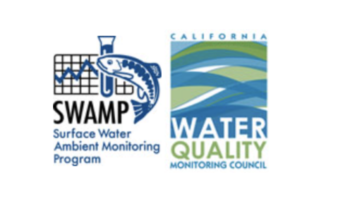 |
Greetings Tribal government representatives and other interested parties, The SWAMP Bioaccumulation Monitoring Program is interested in building relationships with California Native American Tribes and learning about each tribes’ interest and readiness to partner with us. Background The Bioaccumulation Monitoring Program works with its many partners to answer the question: Is it safe to eat fish and shellfish in California waters that the public and tribes use for consumption, subsistence, and/or cultural purposes? The Water Board’s Surface Water Ambient Monitoring Program (SWAMP) evaluated its Bioaccumulation Monitoring Program and issued a Realignment Plan in December 2020. The Realignment Plan calls for a focus on incorporating Tribal perspectives and needs into its monitoring efforts and ensuring those data and information are useful and used by Californian Native American Tribes (tribes) who rely on waterbodies for traditional, cultural, and subsistence uses. The inclusion of representatives from Tribal governments and/or Tribal advocacy groups in the Realignment process is central to the success of the Program and long-term (10+ year) Realignment effort. Tribal representatives who choose to participate in a future Realignment Process will have the opportunity to highlight priorities and shape the future of the Program in their region so that it better serves their communities. Tribal Engagement Plan From March to November 2022, the Bioaccumulation Monitoring Program will be conducting statewide outreach and engagement with tribes that are interested in learning more about the Program or the Realignment process. The main objectives of this Tribal engagement effort are to: Initiate introductions between Bioaccumulation Monitoring Program staff and tribes. Explain the Program and Realignment process, and gauge Tribal interest and readiness to participate in future Realignment cycles. Execute the engagement well in advance of the beginning of the next Regional Realignment cycle (2024) so that tribes have time to make an informed decision regarding their interest and readiness to engage with the Program and participate in future Realignment cycles. How to Participate Schedule an introductory meeting with Program staff. Introductory meetings can be short (~30 min) or long (one or more hours), depending on Tribal representatives’ interest and availability. To schedule a meeting with Bioaccumulation Monitoring Program staff, please complete the Tribal Engagement Interest Form to indicate your interest in connecting with us, your availability to set up a meeting, who should be included in the meeting invitation, and their contact information. There is no deadline to complete the form. The form can be found by clicking the read more button below. Resources below can be found on the Water Boards website. Tribal Engagement Plan Bioaccumulation Monitoring Program Fact Sheet Realignment Plan Fact Sheet Realignment Plan Executive Summary Contact Anna Holder, SWAMP Bioaccumulation Monitoring Program Coordinator and Realignment Lead, at [log in to unmask] (preferred) or 916-341-5096. |
|
|
|
|
|
4. Tribal Beneficial Uses Opportunity- Central Valley Regional Water Board Tribal Beneficial Uses Update Meeting: Thursday, November 10, 2022 | 3:00-5:00 PM |
|
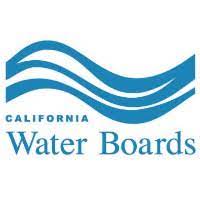 |
The Central Valley Regional Water Quality Control Board (Central Valley Water Board) invites tribes, tribal organizations, and consultants or individuals representing tribes to attend its upcoming Tribal Beneficial Uses (TBU) Update Meeting on November 10, 2022, from 3-5PM. The Central Valley Water Board will be holding this meeting at a physical location with the option to participate remotely via Zoom videoconference or call-in. Meeting Location: Central Valley Regional Water Quality Control Board 11020 Sun Center Drive, Suite 200 Rancho Cordova, CA 95670 The purpose of this meeting is to: Continue soliciting further input to incorporate in the development of the TBU designation process Provide an update following the Central Valley Water Board’s 18 February 2022 adoption and 7 September 2022 State Water Board approval of adding the TBU definitions to the Central Valley Water Board’s Basin Plans Introduce new project staff Highlight recently developed documents to help tribes navigate the beneficial use designation regulatory process Pre-registration is respectfully requested. Agenda and meeting materials will be provided to registered guests prior to the meeting. If you plan on attending either in person or remotely, please register by emailing: [log in to unmask] by Friday, November 4, 2022. NOTE: This invitation is only extended to tribes, tribal organizations, and confirmed consultants or individuals representing tribes. This meeting is not open to the public. If tribes would like a representative not affiliated with a tribe or tribal organization to attend on their behalf, please send an email confirming the representative to [log in to unmask] If you have questions or would like to talk more about the TBU designation process, please reach out to Janaé Bonnell and Lauren Smitherman by e-mail at [log in to unmask] and [log in to unmask] |
|
|
|
5. Funding Opportunity- The California Truth and Healing Fund- EXTENDED DEADLINE: November 15, 2022 |
|
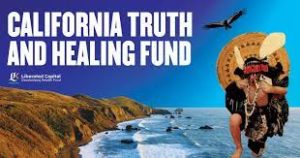 |
The California Truth and Healing Fund is excited to announce that the first round of awards to tribes and tribal serving organizations has totaled a little under $300k to support tribal and community engagement with the Council. Applications for the second round of 2022 funding are now open and will be accepted through November 15, 2022.
The California Truth and Healing Fund is intended to provide California Native American tribes, families, communities and organizations with resources to engage in opportunities associated with the goals of the landmark California Truth & Healing Council. Grant amounts will range from $5,000 to $50,000.
Seeded with an initial $500,000 investment from Decolonizing Wealth Project’s Liberated Capital fund, The California Endowment, and Christensen Fund, and with the goal of raising more than $5 million, the fund is guided by an advisory board of California Natives.
Interested tribes and tribal organizations can find out more information and apply for funding here: https://decolonizingwealth.com/liberated-capital/cathf/. An updated FAQ document is available by hitting the read more button below.
|
|
|
|
|
|
6. Technical Assistance- Transformative Climate Communities Technical Assistance Available Now |
|
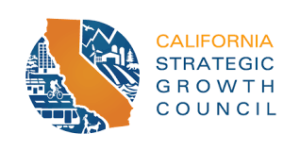 |
The California Strategic Growth Council (SGC) has expanded its technical assistance offerings for the Transformative Climate Communities Program (TCC) to support applicants in advance of the next funding application period. TCC funds community-led planning and infrastructure projects that achieve major environmental, health, and economic benefits in California’s most disadvantaged communities.
In preparation for the next funding cycle of TCC, technical assistance will be provided to potential applicants through workshops, tailored resources, and other guidance from October 2022 to February 2023, with the aim to help applicants prepare competitive Round 5 Planning or Implementation Grant Applications in early 2023.
Intake Survey
To take advantage of the application technical assistance opportunity, please fill out this brief intake survey to be connected to the relevant assistance. The survey link can be found in the read more button below. Details will also be added to the TCC Technical Assistance Webpage in the coming weeks.
|
|
|
|
|
|
7. Opportunity for Tribal Youth- Tribal Youth Certificate Training (Please click the read more button below for PDF of additional benefits) |
|
|
|
|
|
|
|
|
8. Funding Opportunity- Nonpoint Source (NPS) Grant Program |
|
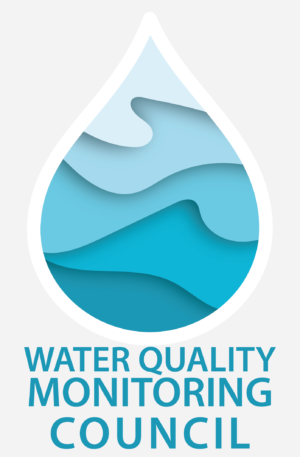 |
To All Interested Parties, This is notification that the request for proposals for the 2023 Nonpoint Source (NPS) Grant Program - Clean Water Act section 319(h) is open from October 3, 2022 through December 19, 2022. New this year!! Informational sessions will be available to learn more about the Nonpoint Source Grant Program and to ask questions about application requirements, program requirements, funding timelines, and more! Details about the informational sessions will be announced on this notification list and will also be posted to the NPS Grant Program website (https://www.waterboards.ca.gov/water_issues/programs/nps/319grants.html). The Nonpoint Source Grant Program seeks proposals for projects that reduce runoff of pollution to waters of the state, such as agricultural projects that reduce pesticide and nutrient runoff, improvement or decommission of dirt roads to reduce erosion and sediment runoff, streambank stabilization to reduce erosion, marina programs to reduce toxic discharges from anti-fouling paints on boats, and infrastructure improvements for ranching and livestock operations to reduce erosion and runoff of nutrients and pathogens. The 2023 Nonpoint Source Grant Program Guidelines (Guidelines), posted on the NPS Grant Program website (https://www.waterboards.ca.gov/water_issues/programs/nps/319grants.html), describe program preferences, eligibility requirements, application process and instructions, project selection criteria, and the grant award process. Please note one of the minimum eligibility requirements is to consult with the NPS Grant Coordinator in the corresponding Regional Water Board listed in Appendix 7 of the Guidelines. Complete proposals are due by 5:00 pm on Monday, December 19, 2022 using the State Water Board’s FAAST system at https://faast.waterboards.ca.gov. For questions or comments about the Nonpoint Source Grant Program, please contact Mike Hanks at [log in to unmask] or (916) 341-5558. |
|
|
|
|
|
9. Clean California Cycle 2 - Tribal Listening Session |
|
|
|
|
|
|
10. Notification of Continued Consultation and Coordination on Potential EPA Actions to Increase Tribal Capacity to Maintain and Expand Nonpoint Source Management Programs |
|
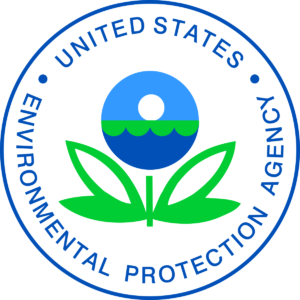 |
Dear Tribal Partners, The U.S. Environmental Protection Agency (EPA) is continuing consultation and coordination with federally recognized Indian Tribes to inform potential EPA actions the Clean Water Act (CWA) (§) 319 national Nonpoint Source (NPS) program could take to better support CWA §319-eligible Tribes in their efforts to manage NPS pollution. As outlined in EPA’s September 27, 2021, national policy memorandum, Near-term Actions to Support Environmental Justice in the Nonpoint Source Program, in fiscal year (FY) 2022, EPA committed to engaging the national NPS community, including Tribal, state, and territorial CWA §319 grantees, in a dialogue on advancing equity and environmental justice in the national NPS program. Over the past year, EPA hosted a series of Tribal CWA §319 grantee equity listening sessions, then convened workgroups, which included EPA staff and Tribal volunteers, to develop suggestions for potential EPA CWA §319 program actions to help achieve equity goals. As part of this engagement effort, on March 29, 2022, EPA initiated consultation and coordination with Tribes to help identify potential CWA §319 program actions to address challenges facing Tribal NPS programs. Based on input received over the last year, EPA released a second national policy memorandum on September 30, 2022, entitled Continued Actions in FY23 to Increase Equity and Environmental Justice in the Nonpoint Source Program. This memo outlines a set of new actions in support of national NPS program equity goals, including EPA’s intention to implement the FY23 President’s Budget proposal to commit an additional $7 million to the Tribal CWA §319 set-aside, contingent on a final appropriation from Congress. As part of this continuing consultation and coordination process, EPA is now soliciting Tribal input on potential changes to the CWA §319 Tribal grant allocation formula. Specifically, EPA invites Tribal input on proposed alternative approaches in how the NPS program awards CWA §319 base grants to eligible Tribes. This consultation period will close at the conclusion of this 60-day comment period on December 23, 2022. The tribal consultation letter and consultation and coordination plan for this action are attached. These consultation materials are also available on EPA’s Tribal Consultation Opportunities Tracking System (TCOTS) website located at: https://tcots.epa.gov/ords/tcotspub/f?p=106:5::1457::::. As outlined in the consultation letter and consultation and coordination plan, EPA will hold two identical tribal informational webinar and listening sessions on Tuesday, November 1, 2022 from 2 – 3:30pm Eastern and on Thursday, November 10, 2022 from 3 – 4:30pm Eastern. The webinars will provide tribal representatives an opportunity to ask questions and learn more about this consultation opportunity and potential EPA actions to advance equity in the national NPS program. To Register: November 10, 2022 Tribal Informational Webinar and Listening Session: https://usepa.zoomgov.com/meeting/register/vJIsdeitrT4uHM3HwIxvhfen6YqlqxykPlM At any point in the tribal consultation and coordination process, tribes may submit written comments either: Via email comments to Steve Epting at [log in to unmask]), or Electronically by using this form. Additionally, Tribal governments may request one-on-one consultation meetings with EPA. If you are interested in requesting consultation with EPA during the consultation and coordination period, please contact Steve Epting at [log in to unmask]For any questions, please contact Steve Epting with EPA’s Office of Wetlands, Oceans and Watersheds by email at [log in to unmask] or phone at (202) 566-1074. Thank you, Karen Gude Tribal Program Coordinator Office of Water U.S. Environmental Protection Agency (202) 564-0831 (desk) (202) 713-6032 (mobile) |
|
|
|
11. 2023 National Fish Forum Registration is Live |
|
 |
The U.S. Environmental Protection Agency (EPA), Office of Water, will hold a virtual National Forum on Contaminants in Fish (Fish Forum) to bring together interested stakeholders to discuss the many issues related to
human health and contaminants in fish. The free virtual conference will be held as follows:
• Week 1: February 28 and March 2, 2023 (12:00 - 5:30 PM Eastern Time)
• Week 2: March 7 and 9, 2023 (12:00 - 5:30 PM Eastern Time)
Some topics likely to be covered include:
• Latest science on specific contaminants in fish and their impacts on human health (e.g., per- and polyfluoroalkyl substances [PFAS], mercury, PCBs, and cyanotoxins)
• Emerging science in developing fish consumption advisories
• Risk communication and public engagement strategies for fish consumption advisories
• Issuing/rescinding fish consumption advisories
• Effectiveness of fish consumption advisories
• Environmental justice: Protection of high frequency fish consumers, such as subsistence fishers and fishers in underserved communities
• Community/participatory science: Roles and practices
• Sampling and analysis: Practices and methods
Register for the Fish Forum at: https://usepa.zoomgov.com/webinar/register/WN_h_jw0futQ1GjDim2P51Ubg.
If you plan to submit an abstract for consideration, please submit all materials for consideration by Wednesday, November 2, 2022. Your abstract should be no longer than 250 words.
For more information, visit https://www.epa.gov/fish-tech/2023-national-fish-forum.
|
|
|
|
12. Save the Date- Tribal Water Summit Planning- April 11- 13th 2023 |
|
|
|
|
|
|
13. Save the Date- Conference: 13th National Monitoring Conference- April 24-28th 2023 |
|
 |
Save the Date!
The National Water Quality Monitoring Council will host its 13th National Monitoring Conference during the week of April 24–28, 2023, at either Hartford, Connecticut or Virginia Beach, Virginia, final location will be released at a future date. All federal, state, tribal and local water professionals, nonprofits, academia, water consultants and industry, and volunteer scientists are welcome at this important national forum. The conference will be offered in a hybrid format primarily in person, including a limited virtual format.
Networking and opportunities to create new relationships will abound for attendees. Whether you seek to develop new skills, learn about the latest technologies, or simply exchange information on a wide variety of topics relevant to water resources, the National Monitoring Conference is for you. Monitoring for water quality/quantity and public and ecological health in all water resources will be represented, including lakes and wetlands, rivers and streams, coastal waters and estuaries, and groundwater. The conference attracts the highest quality professional papers and posters and is a destination conference for many in the field.
Please look for the Call for Session Proposals and Call for Abstracts in Spring and Summer of 2022.
|
|
|
|
14. Feature Opportunity- CIEA Environmental Chronicles Newsletter |
|
First, thank you for reading our newsletter. We greatly appreciate your subscription to updates as they become available. Second, CIEA invites you to please share anything related to environmental issues such as artworks, writings, photos, words/sayings/phrases in your language, quotes that we can use within our newsletters to help close the message. Third, if you would to submit anything, please do not hesitate to contact Joel, our Communications Coordinator at [log in to unmask] |
|
|
|
|
|
If you would like us to share any events or news related to our mission, please do not hesitate to send the information to [log in to unmask] |
|